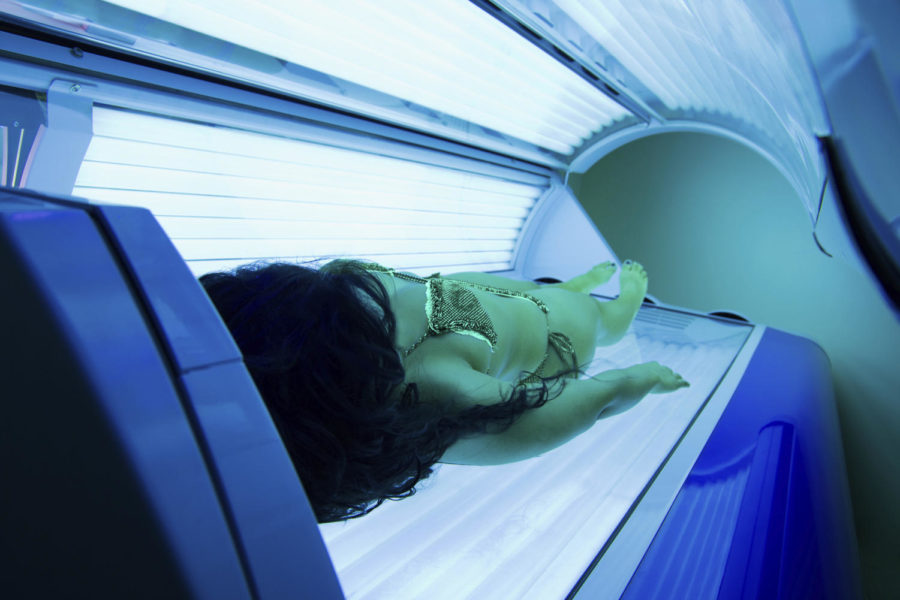Cummings: Tanning beds need regulation
Tanning
February 24, 2014
Though the winter season continues to share the blunt of its flurry fury with us, summer hopefuls pay no mind as they begin to prepare for the coming of warmer months. But men and women alike may find themselves struggling to complete their pre-summer routine as Iowa lawmakers work on a proposal that would ban minors from using tanning beds. Though this proposed law would certainly not deter everyone from artificial tanning, perhaps Iowa is taking a step in the right direction when it comes to the health of our state.
The proposal suggests that in addition to restricting minors from using the tanning beds, tanning establishments will be required to post signs about the dangers of the beds and harmful UV exposure. Surprisingly, the bill is receiving support from the American Suntanning Association on the grounds that it “might end up being a good compromise.”
For decades, there has been a dispute between tanning businesses and health professionals as to whether or not the cosmetic benefit of tanning outweighs the associated health risks. Not as surprisingly, the bill is also supported by the Academy of Family Physicians, the Medical Society and the American Cancer Society Action Network. Many health professionals oppose artificial tanning due to its use of UV-A and UV-B light, which can cause skin cancer.
However, melanoma — the deadliest form of skin cancer — is closely linked to getting severe sunburns, according to the FDA. Young people, they say, are at the highest risk. Along with cancer, the FDA cites other risks, including premature aging, allergic reactions, eye damage and immune suppression. An FDA advisory panel suggested, like Iowa legislators, that limitations be put in place to require parental consent for the use of the tanning beds or even to completely ban tanning beds to all minors.
With the availability of tanning facilities outnumbering both Starbucks and McDonalds in a study of 116 U.S. cities, regulating parental consent may come as a monumental task. And though parents, too, may be aware of the risks tanning poses on their children, there is no guarantee they will willingly limit their children’s exposure. So the complete restriction of tanning to minors seems a more logical solution.
But is it even the government’s responsibility to manage the health of its citizens, or should people be allowed to do as they please to their own bodies, harmful or not? One must consider the argument for and against tanning beds as the same argument against cigarettes and alcohol. Though completely well-informed adults are just as able to make dangerous choices about their health as minors are, the government must draw the line somewhere when it comes to making restrictions on what seem to be personal choices.
For the same reasons that minors are considered minors at all — they are below the age which separates children from adults and cannot, arguably, make well-informed decisions about certain things — it makes sense that tanning beds should be restricted to them in the same way that harmful substances like cigarettes and alcohol are restricted.
Naturally, establishing and enforcing this law will not guarantee that all minors will comply. Just like with cigarettes and alcohol, legally banning tanning does not mean that minors will not find other illegal means of getting that bronzed glow. But, just like cigarettes and alcohol, if putting these laws into practice means saving even one life from cancer and other associated diseases and injuries, then it would be worth the hassle.
Parents and lawmakers should instead promote healthier practices, such as spray tanning or limited outdoor sun exposure with the use of sunscreen. Though the issue of over-tanning may run deeper than physical health problems and delve instead into issues of body image, state legislators can do little more than advocate alternative solutions for people seeking to alter their appearance, but their intervention is needed.
To continue to allow our young people to purposely harm themselves and put themselves at risk for serious diseases in the name of appearance is a gross disservice to the state of Iowa and the rest of the nation. The state is right to propose a law to ban tanning beds to minors because, though it will certainly face a backlash of opposition, it’s for the good of the people.

















